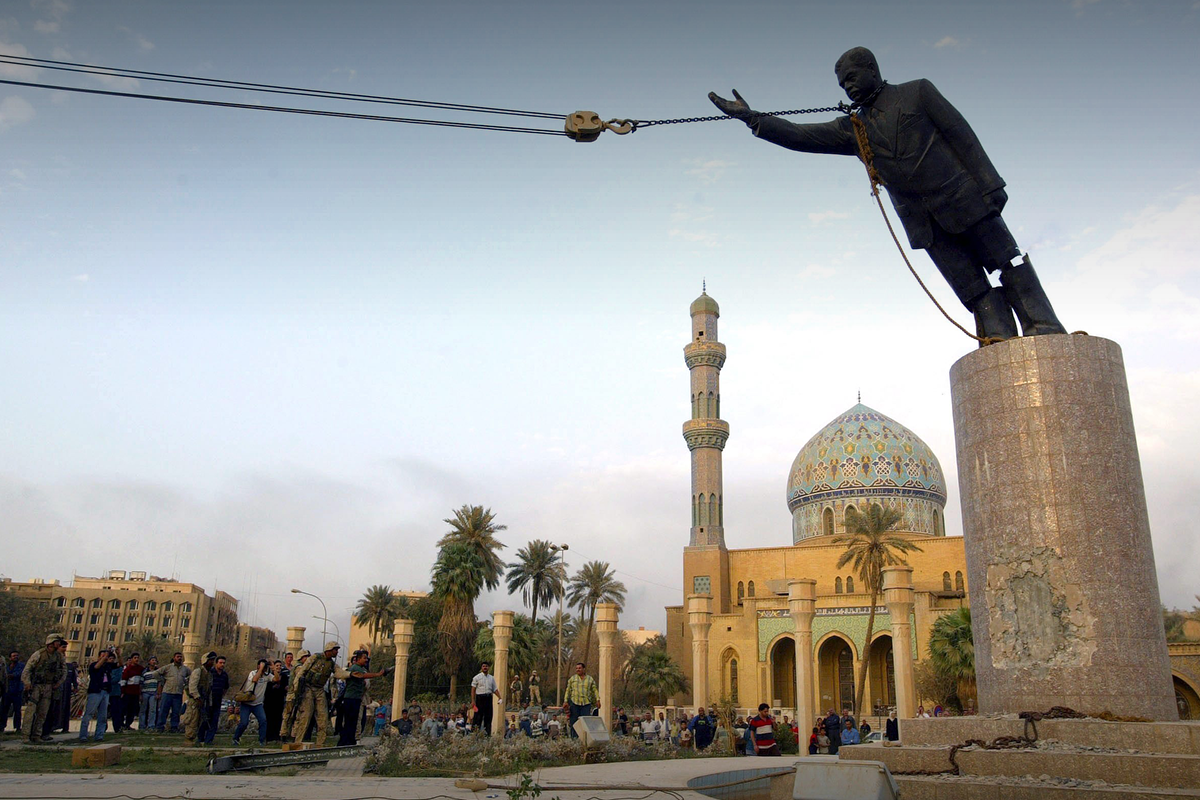A former Iraqi cabinet minister and long-time member of Saddam Hussein’s inner circle made a refugee claim in Canada because Iraq said it would no longer pay for his expensive dialysis treatments, Global News has learned.

And, at first at least, he wasn’t found inadmissible to Canada.
Babakr Mahmud al-Rasul, who served as Iraq’s minister of labour and social affairs between 1977 and 1989, made the claim in June 2015 while in Ottawa, roughly one week after learning Iraq would no longer pay for his medical care. A Kurd from northern Iraq, Rasul also said he feared persecution for his political beliefs.
However, immigration officials flagged Rasul’s claim for possible inadmissibility to Canada because he was a “senior official” in the regimes of two former Iraqi dictators that Canada has said engaged in systemic human rights violations and crimes against humanity.
But a judge at Canada’s Immigration and Refugee Board (IRB) decided Rasul’s claim could go forward, accepting his argument that he was coerced into being a cabinet minister, which the judge ruled absolved him of any responsibility for the atrocities committed by Iraq’s government while he was in office.

Lawyers for Public Safety Canada disagreed. They appealed and were eventually able to overturn the decision, but not before Rasul would have been eligible to receive taxpayer-funded health care in Canada.
In his March 2018 ruling, overturning the previous decision, IRB appeals judge Haig Basmajian said Rasul was not coerced into remaining a cabinet minister, and that he was “surprised” by Rasul’s attempt to characterize the Hussein regime as “not that brutal.”
“One week before he made his claim, (Rasul) was advised that his health costs would no longer be covered by the Iraqi government,” he wrote.
“As he requires dialysis three times a week, this would be the equivalent of a death sentence for him.”
Though eligible to receive health care through the Interim Federal Health Program, Global News cannot confirm if Canada paid for any of Rasul’s medical treatments.
Rasul played ‘key role’ in Hussein regime
At the time Rasul made his claim for refugee protection he had been living in Canada for three years with his wife, who, according to Basmajian, began working at Iraq’s embassy in Ottawa in 2012.

Get daily National news
It’s unclear why Rasul was allowed to enter Canada, but according to Basmajian’s decision, efforts to deem him inadmissible and deport him did not begin until after his refugee claim was made.
This, Basmajian said, was despite Rasul having served as a cabinet minister for more than a decade in the “brutal regimes” of Ahmed Hassan Al Bakr and Saddam Hussein.
According to Basmajian, Rasul’s “significant responsibilities” while in government included serving as a spokesperson during the Iran-Iraq War, signing bilateral agreements with other countries, plus his efforts as labour minister to bring foreign workers to Iraq, which Basmajian described as “essential to Iraq and strategic in nature to carry out the objectives of the (Hussein) regime.”
Rasul, meanwhile, downplayed his role in the government, stating in his refugee claim and during testimony that he did not hold any real power in Iraq and that he did not benefit from his position as a cabinet minister.
Basmajian disagreed, however, ruling that Rasul was “evasive and not very forthcoming” during questioning, including when asked if military campaigns were ever discussed during cabinet meetings.
And despite multiple opportunities to do so, Rasul made no effort to leave Iraq until after he had secured the “enviable posting” as the general director of the Arab Labour Organization in Egypt in 1990, Basmajian said.
Immigration lawyer Richard Lage, who represented Rasul at the IRB, told Global News he would pass on a request for an interview to Rasul’s wife, adding that his former client was not in a position to comment.
Lage did not say if Rasul and his family are currently in Canada.
Where is Rasul now?
It’s unclear if Rasul, now 82, was allowed to stay in Canada and receive medical treatment following the March 2018 inadmissibility ruling and subsequent deportation order.
Global News asked the Canada Border Services Agency (CBSA), which is responsible for removing people from Canada, if Rasul was deported, but the agency would not comment, citing privacy concerns.
Scott Bardsley, a spokesperson for Public Safety and Emergency Preparedness Minister Ralph Goodale, also refused to say whether Rasul was removed, adding that because of ongoing danger in Iraq, Canada has a ban on deporting people there.
WATCH: Trudeau defends refugee system, says higher numbers due to global instability

He did, however, say that under certain circumstances, such as when a refugee claimant is deemed inadmissible due to gross human rights violations, a person can be declared a “danger to the public” and to Canadian safety. This allows the government to deport them, even to countries it considers dangerous.
Bardsley would not say if the government has started the process of declaring Rasul a danger to the public. He also did not explain why, given his history in Iraq, Rasul was allowed to enter Canada in the first place.
An unnamed official from Iraq’s embassy in Ottawa replied to an email, saying they could not comment.
Other ‘senior official’ from Iraq made refugee claim
Rasul isn’t the first senior official from the Hussein regime to try to make a refugee claim in Canada.
In February 2014, Faisal Abdulhaleem Ali Al-Ani, a former brigadier general in Iraq’s army, claimed asylum in Canada. As first reported by the National Post, Al-Ani alleged he would be persecuted if he returned to Iraq because he is a Sunni Muslim and because of his connection to the Hussein regime.
But Al-Ani was deemed inadmissible by the IRB, even though he claimed he did not exert “significant influence” over the Iraqi government.
And the Federal Court judge who made the final decision in his case said that once someone is ruled a “senior official” of a regime that has committed gross human rights violations, they are automatically excluded from making a refugee claim.
This is the same logic Basmajian applied to Rasul’s case.
And while he did not say Rasul was directly responsible for any crimes against humanity, Basmajian did say that Rasul benefited from his cabinet position, adding that it was only after he found out Iraq would no longer pay for his medical care that he made his refugee claim.
“(Rasul) was not coerced into staying on as a high-ranking official in Iraq,” Basmajian wrote.
“Given the longevity he had in his postings, it would seem that, unfortunately, he probably became blinded to the awful acts committed by the Iraqi regimes.”
Contact: brian.hill@globalnews.ca










Comments
Want to discuss? Please read our Commenting Policy first.